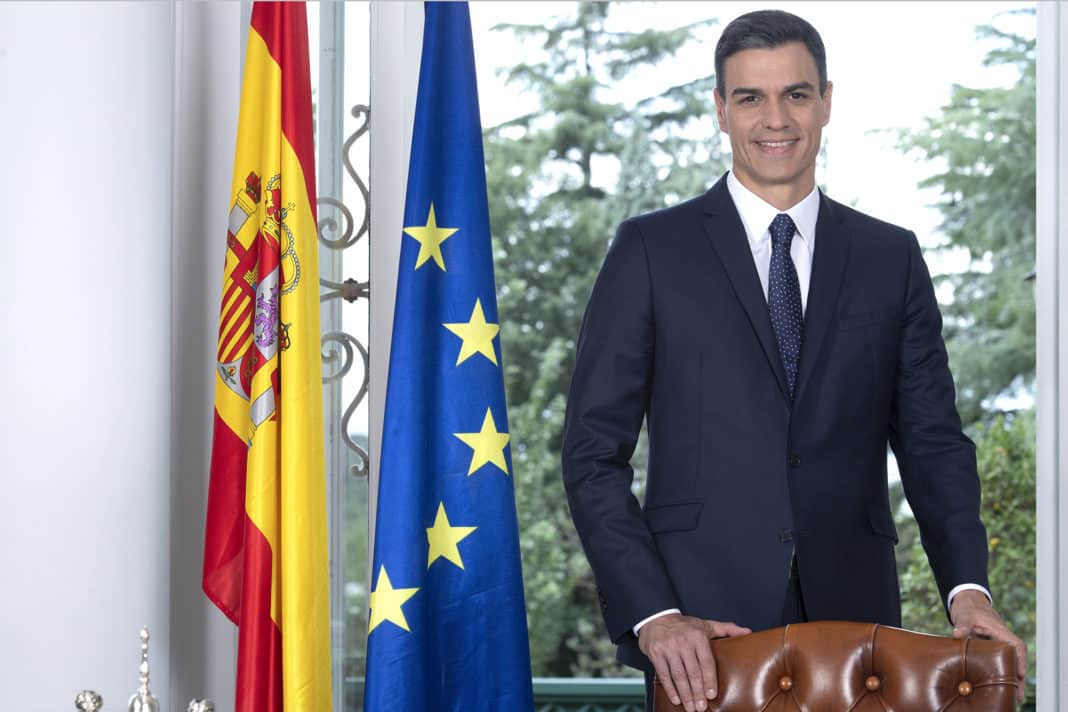The new package to alleviate the consequences of the war in Ukraine has been announced by the Spanish Government, who will mobilise another 10 billion euro to extend the social shield that was approved last March, days after the Russian invasion of the Ukrainian country began.
Among other measures, the ceiling on rents will be extended for another six months, a one-off payment for 200 euro will be given to vulnerable households that earn less than 27,000 euro per year and IVA on basic foods will be reduced. The reduction in public transport will also be maintained, although the aid of 20 cents for each litre of fuel for everyone is eliminated, except for specialised sectors.
This has been announced by the President of the Government, Pedro Sánchez, who appeared from Moncloa to take stock of the legislation of the last six months and to present this package, with which the amount of money that the Government has invested for the Russian invasion exceeds 45 billion euro, which has managed to reduce inflation by four points in the last four months, now standing at 6.6%, with Spain being the country with the lowest inflation in the Eurozone.
“With these measures we protect the middle class and companies from the increase in the cost of living, energy and food,” said the president after holding the last Council of Ministers in 2022. This phrase is not trivial, since the coalition has based this aid package on the price of food, the main concern since the cost of fuel has moderated.
In this sense, Sánchez has announced the lowering of the IVA tax on basic food, which is added to the extension of the reduction of said tax on energy. The reduction will be from 4% to 0% in products such as bread, milk, cheese, eggs, fruits or vegetables, legumes and cereals; and from 10% to 5% for oils and pasta. Meat and fish are left out. They will also distribute 300 million in direct aid to farmers in order to offset the increase in costs due to the increase in the cost of fertilizers.
With both measures, the Executive expects the price of food to fall, which shot up to 15% last November. Sánchez has assured that it will be required by law that these government efforts be transferred to the reduction of costs for families, although he has not specified how. In addition, a payment of 200 euro has also been approved for families whose income does not exceed 27,000 euro per year and do not have assets of more than 75,000 euro. It will be made through a single payment, like others previously approved by the Executive, and will reach 4.2 million homes.
Another of the areas in which emphasis is placed is housing. The decree extends the suspension of evictions and the release of vulnerable homes for six months and extends the 2% ceiling on rent increases until December 31, 2023 and the prohibition of cutting essential supplies. Likewise, the 15% increase in the minimum vital income and non-contributory pensions will also be maintained.
In the field of transport, the Government has decided to eliminate the general aid of 20 cents per litre of fuel, once fuel prices have begun to moderate. This discount, however, will continue “for the most affected sectors”, such as transporters, farmers or fishermen. What will be maintained is the 30% discount for public transport managed by autonomies (metro) or municipalities (buses). Of course, the Executive makes it subject to the other administrations contributing another 20% so that the discount that reaches users is 50%. This measure is “complementary” to the free Cercanías service, which the Government has already included in the 2023 Budgets, approved a few days ago in the Senate.
As usual, the new decree has generated tensions in the talks between the PSOE and Unidas Podemos. In fact, the second vice president, Yolanda Díaz, has held an early meeting with the president to finalise the details. In this sense, the ‘purples’ have shown their satisfaction with what was approved. “We have worked hard and negotiated until first thing this morning to reach this agreement,” said Ione Belarra, general secretary of the group, who was “satisfied” although she regretted that the price freeze for variable rate mortgages was not included.
By contrast, the Partido Popular (Pp) has indicated that the decree “falls very short.” Without advancing the party’s vote on the new law, which must be endorsed in the Congress of Deputies in the coming weeks, the PP’s parliamentary spokesperson, Cuca Gamarra, has indicated that the aid package “does not help the Spaniards”. The PP has criticised the one-off payment for “leaving out eight million Spaniards who are also middle class” and has rejected the measures because “the Spaniards already paid that money in 2022.”





